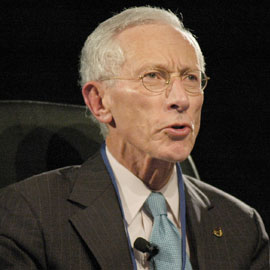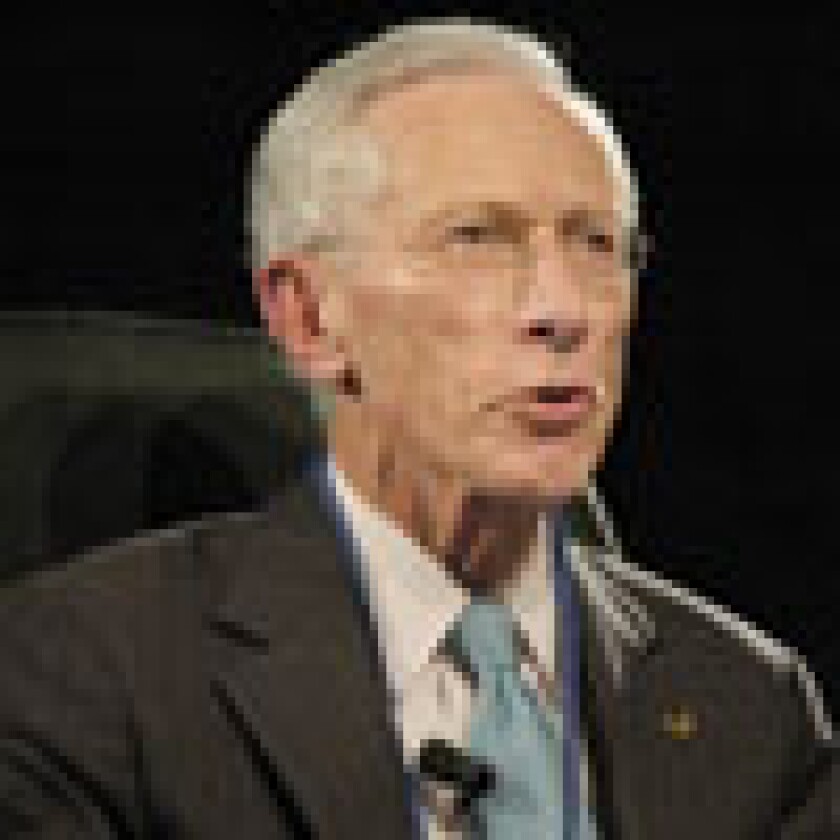 |
| Fischer: incentives needed |
Currency wars are probably inevitable, as emerging economies struggle to cope with the effects of an economic crisis not of their own making, Bank of Israel governor Stanley Fischer warned yesterday. His blunt assessment at an Insitute of International Economics seminar was matched by a bleak analysis from economic guru Nouriel Roubini, who suggested – both from the same platform, and in an article this week in Emerging Markets.
Intervention in exchange markets by emerging market economies, along with imposition of capital controls, is “happening on a massive scale” already, said Fischer. He admitted that the Bank of Israel is among those intervening.
“We cannot see why countries should not do this,” Fischer, a former first deputy managing director of the IMF, said. “It probably does work in the short run.”
Emerging economies are in effect being asked to “accept a tax on their exports” by allowing their currencies to appreciate, said Fischer. He pointed out that these countries are being pressed to contribute to solving a problem which “they did not start.”
It is unrealistic to expect emerging economies “to act against their own interests,” Fischer said. “What is needed is a set of incentives that makes countries do what is good for the system when they do what is best for themselves,” he added.
But Fischer said that he could not see any solution emerging in the short term. “It will take a long time to get rules into place,” he said.
Recent volatility of the dollar/euro exchange rate has contributed to problems in exchange markets, Fischer said. It had been “excessive, and it is suprising that it has not created more noise.”
Meanwhile France and Britain moved to calm tensions over the threat of a currency war, saying that reform of exchange rates should be part of long-term coordinated rebalancing of the world economy.
French finance minister Christine Lagarde said all the major players had to compromise “a bit”, adding: “We don’t want to talk about [currency] war, we want to talk about peace.
“What we share is a desire for better stability, less volatility and a framework and ingredients that are conducive to strong, sustainable and balanced growth.”
But successful rebalancing of the world economy is not “something you can achieve overnight and just announce”, Lagarde added. “It will be a long-ranging project that will take us into 2011.”
British finance minister George Osborne urged countries to ensure their currencies “reflect market fundamentals”, but declined directly to criticise China, which has been accused to depressing the renminbi to boost exports to the West.
Asked whether policymakers would act to head off a currency war, he said: “We do need to move toward market-oriented exchange rates that reflect fundamentals.
